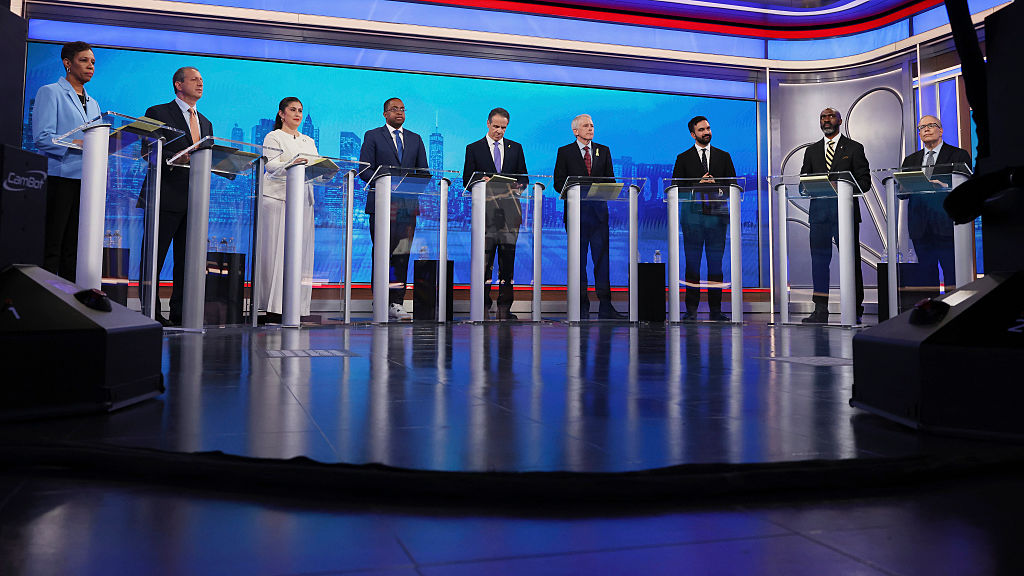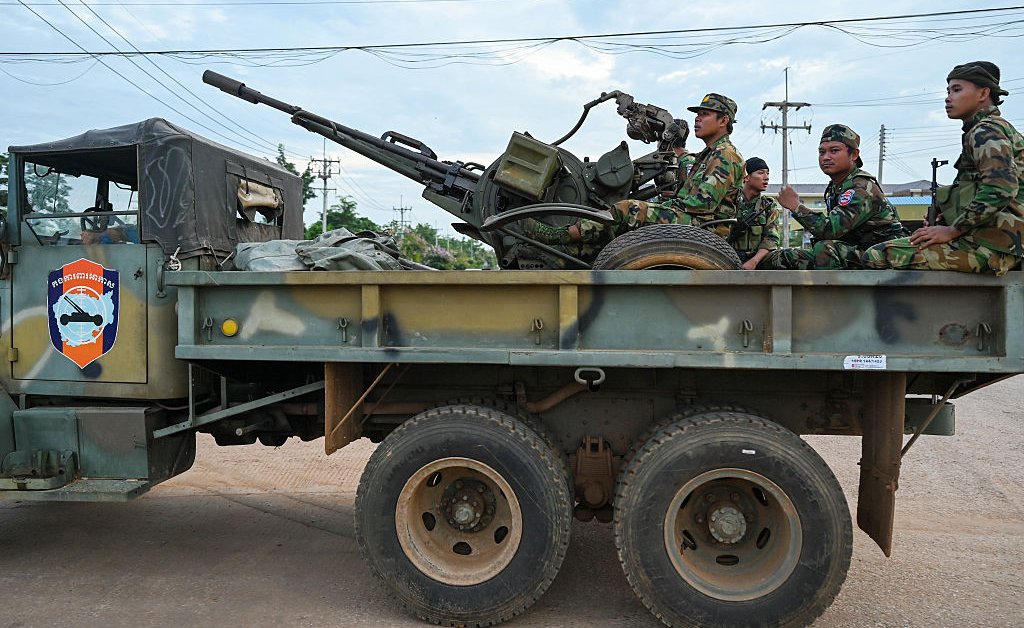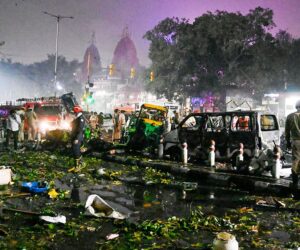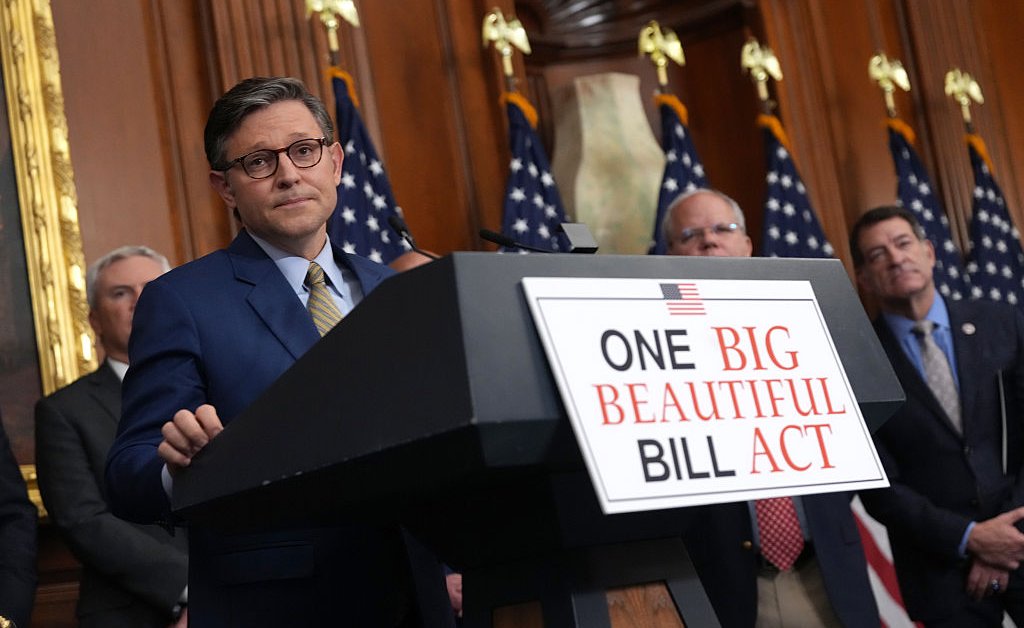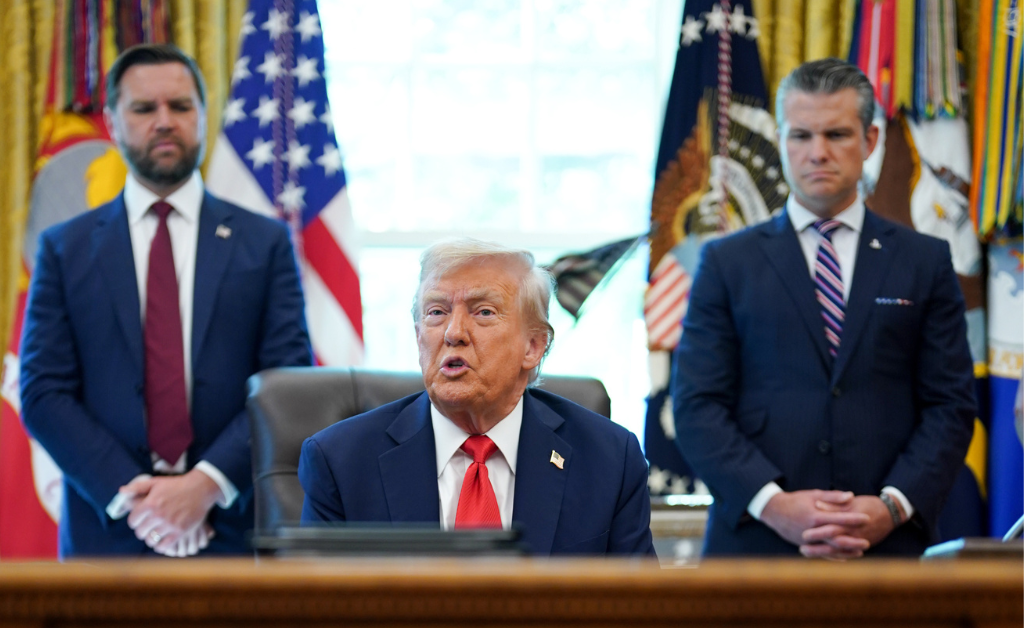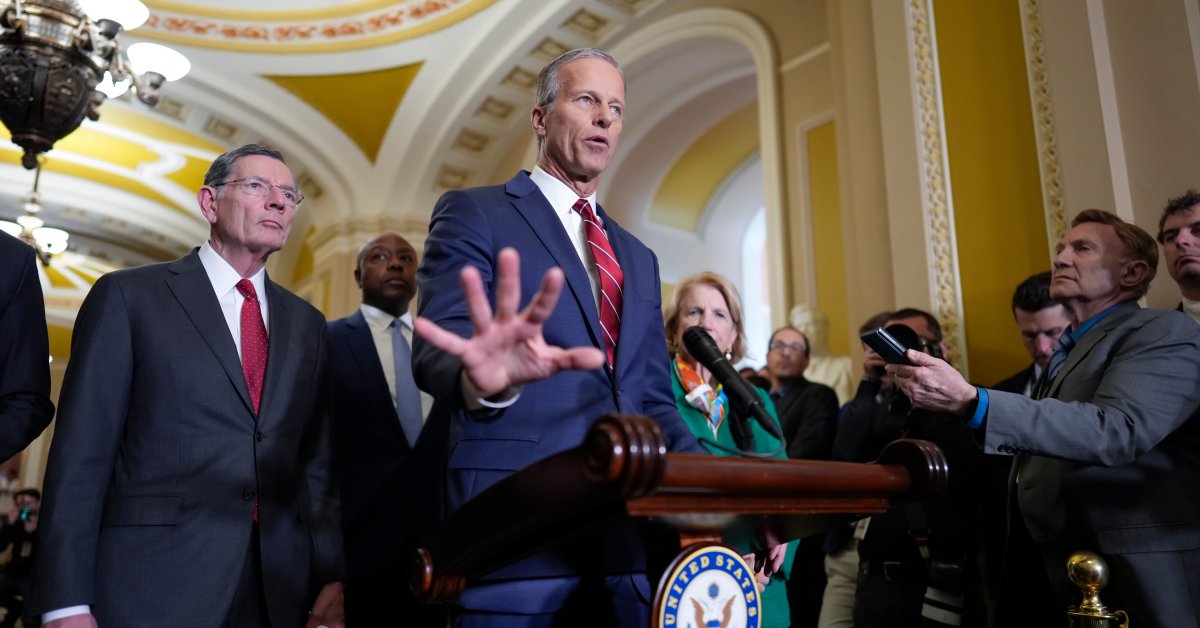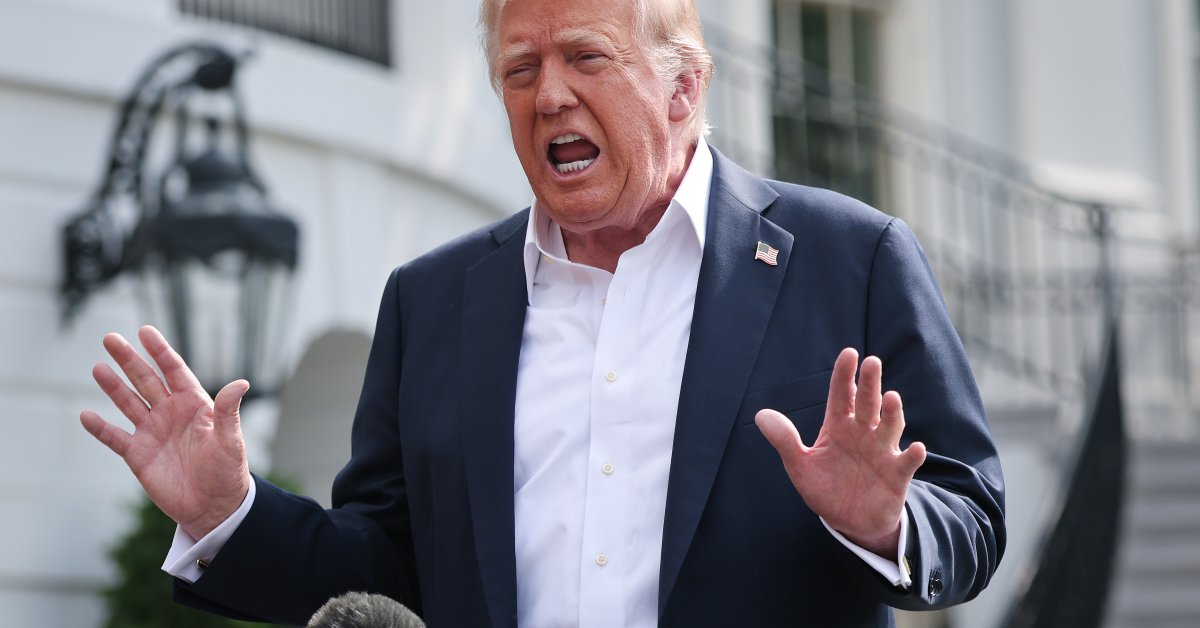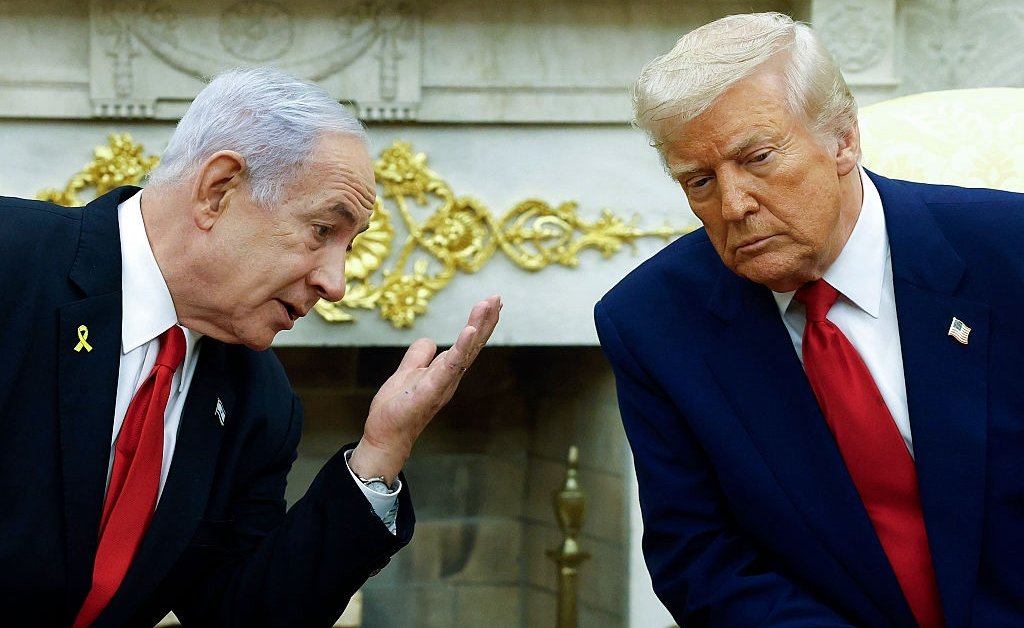New Yorkers are braving the heat to cast their ballots in Tuesday’s Democratic mayoral primary election, which is set to be a nail-biter between Democratic Socialist state Assemblymember Zohran Mamdani and former New York Gov. Andrew Cuomo.
In total, voters can select from eleven contenders when they cast their ballot, ranking up to five of their top choices under the city’s ranked-choice voting system.
Other candidates include New York City comptroller Brad Lander, City Council Speaker Adrienne Adams, and former comptroller Scott Stringer.
The current mayor, Eric Adams, is notably absent from the primary ballot after facing federal charges for corruption and bribery. The charges have since been dropped by the Trump Administration, but the mayor announced amid the scandal and legal battle that he would run as an independent after previously campaigning and being elected as a Democrat in 2021.
The winner of the Democratic primary will face Adams, Republican candidate Curtis Sliwa, and independent candidate Jim Walden come November, but is likely to become the next leader of the city, which has selected a Democrat in the past three mayoral elections.
Polls are open in the city until 9 p.m.
Here’s where the top candidates stand on several notable issues.
Trump
Many New York City voters are hoping to elect a city leader who can stand up to President Donald Trump and his policies as the Administration faces widespread disapproval and protests.
Cuomo, whose national profile grew during the COVID-19 pandemic as he stood up to the President, has capitalized on the anti-Trump sentiment throughout his campaign.
The former governor claimed the U.S. is “in the middle of a war” with Trump during a Juneteenth lunch on Thursday. “President Trump has declared war on Democratic states, Democratic cities. He’s declared war on working families, he’s declared war on immigrants, he’s declared war on minorities,” Cuomo said before adding, “Good news is—we beat [the administration] once before, and we’re going to beat them again.”
The 67-year-old candidate has promised to defend the city’s sanctuary laws limiting its cooperation with federal immigration authorities, sharing a six-point plan in light of Trump’s deployment of federal troops to quell Los Angeles protests over Immigration and Customs Enforcement (ICE) raids.
But his response to U.S. airstrikes on Iran were notably more tepid than those of his counterparts. “Iran cannot have nuclear capability,” Cuomo said in a statement, though he added, “The second issue is the way Trump went about this without consulting Congress, without consulting the normal congressional officials. Congressional officials have said that was a violation of the Constitution—it may very well be.”
Mamdani, meanwhile, called the President’s actions “unconstitutional” and part of a “dark chapter in his endless series of betrayals.”
The state Assemblymember, who has risen fast in the polls in recent weeks, is navigating claims that he lacks the experience necessary to lead the city. He has vowed to “Trump-proof” the city by ensuring that ICE stays out of its facilities, increasing legal support, and protecting the personal data of city residents. He has vowed to make New York an LGBTQIA+ sanctuary city, including by implementing protections for gender-affirming-care. (The Supreme Court ruled that Tennessee’s ban on such healthcare for trans youth was permissible last week.)
Read more: What to Know About New York Mayoral Candidate Zohran Mamdani
Lander has also spoken out against Trump’s immigration policies—and demonstrated his commitment to battling them. The mayoral candidate was arrested by federal agents on June 17 after accompanying migrants at immigration court. Lander was videotaped asking authorities for a judicial warrant and holding on to a man agents were looking to detain before being arrested himself. He has pledged to keep New York City safe for women, people of color, Jews, Muslims, and the LGBTQ+ community.
Stringer has introduced a SHIELD plan as part of his proposed efforts to battle Trump. Under the plan, he would create a new designation for federal buildings that would give the city regulatory authority over them.
Adrienne Adams has also vowed to “Trump-proof” the city. Her tenure as city council speaker, she says, speaks for itself. Adams filed—and won—a lawsuit against Mayor Eric Adams to keep ICE from reopening an office on Rikers Island. She has also spoken out against the arrest of Mahmoud Khalil, the pro-Palestinian activist and former Columbia University student who was held in an immigration detention center for months, calling it an “abuse of power” by the Trump Administration.
Policing and the justice system
Public safety is also at the top of voters’ minds. While overall crime in the city fell in 2024, a series of subway attacks, including one in which a person was lit on fire, has raised concern.
Cuomo has promised to add 5,000 new NYPD officers to the workforce to increase neighborhood patrol and better respond to emergencies, and made calls for more compassionate care for those who are experiencing mental health crises. The former governor has also called for the election and appointment of more judges to improve court efficiency if he were mayor.
Lander has vowed to reduce crime and restore public safety by “confronting the staffing crisis” at the New York Police Department (NYPD), according to his campaign website. He promised to keep police commissioner Jessica Tisch in command, and to end street homelessness through a better coordinated system of outreach and hospitalization that provides individuals with secure housing.
Stringer has similarly promised to create strong recruitment and retention programs to combat NYPD staffing shortages. He plans on hiring 3,000 more officers and “‘civilianizing’ NYPD administrative roles to free up uniformed officers for core policing duties,” per his campaign website. He’s also called for NYPD placements on subway trains.
Adams’s public safety plan includes hiring 2,400 more NYPD workers in her first eight months in office, calling in mental health professionals for mental health emergencies, and placing more cops on subway patrol. The plan marks a shift after she voted as a city council member to reduce the NYPD budget in 2020.
Unlike his fellow candidates, Mamdani is not proposing to expand police services. The young lawmaker has instead vowed to create a Department of Community Safety, which would aim to “fill the gaps” of services meant to address mental health, subway safety, hate violence, and more. The new department would move away from relying on the police for the city’s “social safety net” and instead rely on another subset of workers that can address mental health crises and respond to gun violence, according to Mamdani’s campaign. He has also said he would get rid of the NYPD’s overtime budget and its Strategic Response Group, which reacts to protests, per the New York Times.
The housing crisis
The estimated average rent in New York City ranges from $3,700 to more than $4,000 per month.
Mamdani has proposed an ambitious plan to address the housing crisis, vowing to freeze rent for all stabilized tenants, build 200,000 units of affordable housing over the next decade, and create a new office to protect New York City homeowners. Mamdani has said he would pay for some of his proposals by increasing the corporate tax rate to match New Jersey’s 11.5%, which would bring in $5 million to the city.
Lander has vowed to take major action to address housing costs and shortages as well. The comptroller has said he would declare a state of emergency on housing, promising to build 500,000 new housing units, and freeze rent for New Yorkers. He has promoted his previous nonprofit work building affordable housing units, and his work as comptroller issuing social bonds to finance thousands of other low-income housing apartments.
Cuomo has pledged to increase the housing supply, in part by identifying public land that could be redeveloped, and pass rent-stabilization laws. He has also promised to provide tax relief for low-to-middle income voters.
Read more: How Ranked-Choice Voting in the New York City Mayoral Primary Works
Stringer has said he would address the city’s housing crisis by turning vacant and “underutilized city-owned properties” into affordable housing. He also launched a Robin Hood Housing Plan, which would allow the city to seize the property of landlords who have repeatedly failed to meet safety housing standards, and give them to “responsible developers.” Stringer additionally promised to invest in public housing so that apartments are repaired and modernized.
In a questionnaire by the New York Housing Conference, Adams said she would secure at least $4 billion in capital funding for housing and dedicate a greater portion of funding towards repairing Section 9 units. She expressed support for CityFHEPS, a rental assistance program for low-income residents, pointing to her lawsuit against Mayor Adams for refusing to implement recent laws that would increase access to the program. On Monday, she issued a statement condemning the mayor for barring the construction of affordable housing units for older adults. Her vision for New York City includes a “housing first” approach, according to the questionnaire.
Israel
Foreign policy has played a major role in the mayoral election. Candidates have been careful in their discussions of the Israel-Hamas War as numerous pro-Palestinian protests have emerged across the city over the past year. At the same time, New York City is home to nearly a million Jews, meaning the ethnic and religious group makes up more than a tenth of the city’s population, according to a survey published by the UJA Federation of New York.
Mamdani has faced criticism for his condemnation of Israel and defense of the phrase “globalize the intifada.” Intifada directly translates to “shaking off” or “uprising,” but also holds political connotation as it is the word used to describe two major periods of Palestinian rebellion against Israel. Some Jews have called the phrase antisemitic because they see it as a call for violence against Jews and their cultural and religious centers, according to the American Jewish Committee.
Mamdani, who would be the city’s first Muslim mayor if elected, said in an interview with The Bulwark that when he hears the phrase he thinks of a “desperate desire for equality and equal rights in standing up for Palestinian human rights.” He countered claims of antisemitism, saying that “there is no room for antisemitism,” in response to a press question.
The state lawmaker has a history of pro-Palestinian activism. He co-founded Bowdoin College’s first Students for Justice in Palestine chapter while attending the school. Amid the ongoing war in Gaza, he participated in a five-day hunger strike to advocate for a ceasefire in 2023.
By contrast, Cuomo has declared his “unwavering” support of Israel. Cuomo launched Never Again, NOW!, a group aimed to tackle antisemitism. The Times reported in March that the coalition never followed through on some of its pledges, including a commitment to hold a symposium that would share “the truth about anti-Zionist rhetoric” at colleges and universities, or an educational hub about Israel and Hamas.
A 2020 lawsuit was filed against Cuomo for his crackdown on religious gatherings during the pandemic. Plaintiffs claimed the former governor engaged in “anti-Semitic discrimination.” A federal judge blocked the lawsuit in October 2020. In recent conversations with Hasidic Jewish leaders, Cuomo allegedly expressed regret for calling out the Hasidic community and their compliance with social distancing enforcement during the pandemic, according to The Forward, a news organization targeted toward an American Jewish audience.
The former governor has all but accused his opponents of antisemitism over their stances on the war in Gaza, saying in a speech this spring, “It’s very simple: anti-Zionism is antisemitism.”
City Council Speaker Adams announced on the debate stage that her first international visit as mayor would be to Israel, which she referred to as “the holy land.” Adams previously declined to partake in a weeklong trip to Israel that is sponsored by the Jewish Community Relations Council of New York, making her the first speaker to do so, per Politico.
Lander, the city’s highest ranking Jewish elected official, has drawn on his personal experiences to touch on the need to combat antisemitism. He denied Cuomo’s suggestions that he is antisemitic, and has referred to himself as a liberal Zionist, Politico reports. Lander supports a two-state solution and has denounced the pain of Palestinians in the midst of the Israel-Hamas War.
Stringer, who is also Jewish, supports Israel and has referred to himself as a “proud Zionist.” He and Cuomo have received donations from Solidarity PAC, a pro-Israeli group, according to the Times of Israel.

